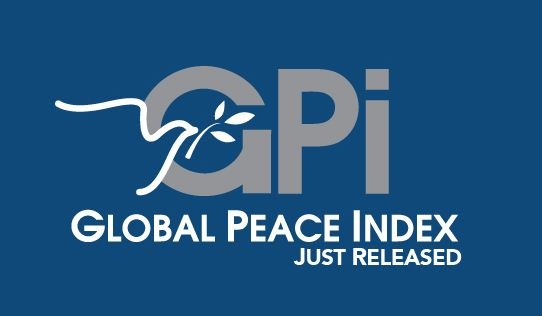The Global Peace Index, produced by the Institute for Economics and Peace, is the world’s leading measure of global peacefulness. It gauges ongoing domestic and international conflict, safety and security in society, and militarization in 153 countries by taking into account 23 separate indicators.
Key Findings for 2011
- The world is less peaceful for the third straight year
- Due to an increased threat of terrorist attacks in 29 nations
- A greater likelihood of violent demonstrations in 33 countries
- Arab Spring unrest heralds biggest ever change in rankings, Libya tumbles 83 spots
- Iceland bounces back from economic woes to top ranking
- Somalia displaces Iraq as world’s least peaceful nation
- Violence cost the global economy more than $8.12 trillion in 2010
- US peacefulness shows minimal change
See the results and interactive map
More from the 2011 Results
Impact of Arab Spring Unrest
The 2011 Index dramatically reflects the impact on national rankings of the Arab Spring. Libya (143) saw the most significant drop – falling 83 places; Bahrain (123) dropped by 51 places – the second largest margin; while Egypt (73) dropped 24 places.
Index influenced by internal conflict & not warfare between countries
The fall in peacefulness in this year’s Index is strongly tied to conflict between citizens and their governments rather than conflicts with other nations.
Threat of Terrorism Climbs
Despite the decade long War on Terror, the likelihood of terrorist attacks has increased in the past year in 29 countries.
Spending on Weapons falls
While the overall level of peacefulness was down, this year’s data did show increased peacefulness in some areas – most notably levels of military expenditure as a % of GDP and relations between neighbouring states.
Other Regional Findings
Sub-Saharan Africa remains the region least at peace, containing 40% of the world’s least peaceful countries, Sudan (151) and Somalia (153) at the bottom of the Index.
If the world had been 25% more peaceful over the past year there would have been an economic impact of US$2 trillion to the global economy. This amount would pay for the 2% of global GDP per annum investment estimated by the Stern Review to avoid the worst effects of climate change, cover the cost of achieving the Millennium Development Goals, eliminate the public debt of Greece, Portugal and Ireland, and address the one-off rebuilding costs of the most expensive natural disaster in history – the 2011 Japanese earthquake and tsunami.
For the fifth consecutive year, Western Europe is the most peaceful region with the majority of countries ranking in the top 20. Four Nordic countries are ranked in the top ten
North America demonstrated a slight improvement since last year. Canada (8) jumped 6 places in this year’s rankings whereas the US’s (82) overall score remained unchanged although its ranking improved from 85th to 82nd.


